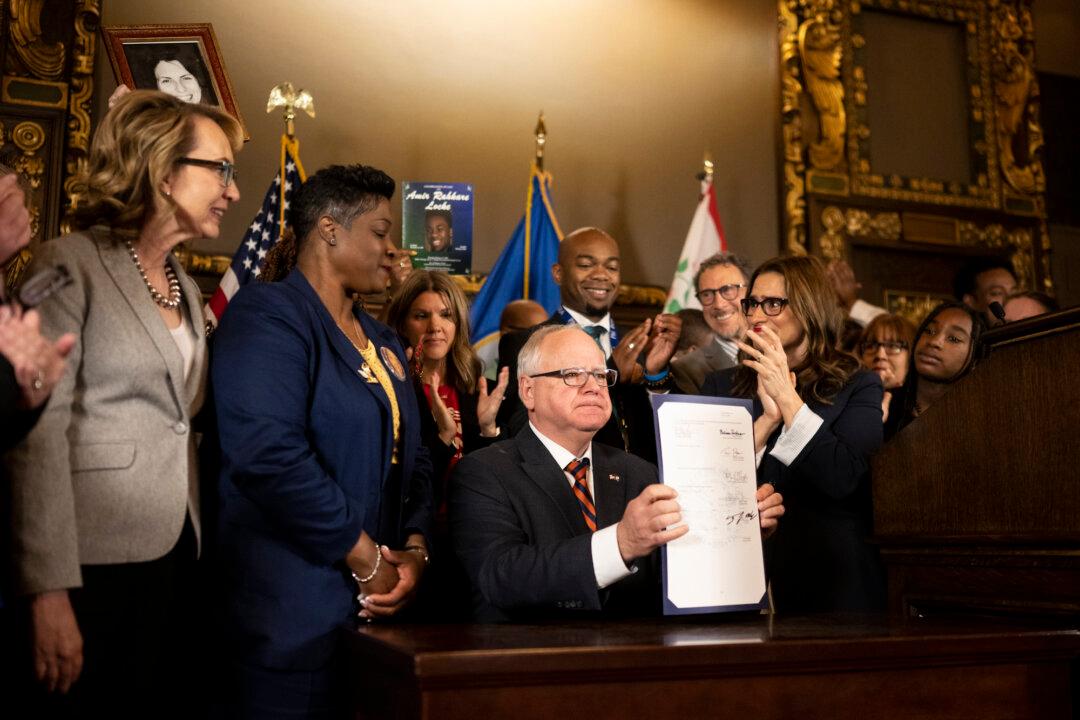Minnesota Gov. Tim Walz on May 19 signed into law a sweeping gun control bill that includes universal background checks and a “red flag” measure that lets law enforcement intervene if someone is deemed at high risk of injuring themselves or others with a firearm.
The gun control measures were folded into a broader public safety bill, SF 2909, which also includes funding for the Bureau of Criminal Apprehension to fight violent crime, imposes limits on no-knock warrants, and provides tens of millions of dollars in grants to community-based crime prevention efforts.





